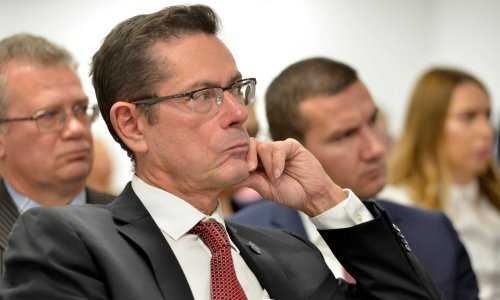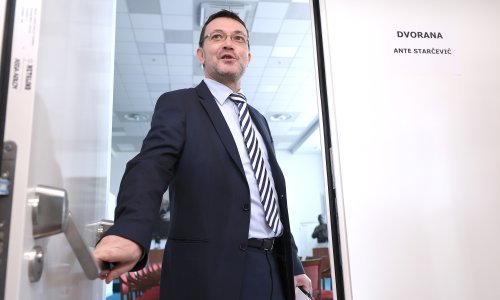The Dragan Paravinja case has shown that existing agreements on the extradition of people accused of the gravest crimes should be amended, justice ministers Drazen Bosnjakovic of Croatia, Snezana Malovic of Serbia and Barisa Colak of Bosnia and Herzegovina said in Sremski Karlovci on Friday, adding that the task forces of the three countries would soon get to work.
The ministers told a joint news conference that amending the agreements was in the interests of all three countries.
Bosnjakovic said there already existed many agreements on cooperation in legal matters, but that cases like Paravinja, "which happened in Croatia, (but) all three countries in the region in some way have things in common in the case, has shown us that we must expand certain agreements, improve them, and in this spirit we agreed today that our task forces will meet next week and start working on draft amendments to the extradition agreement."
Paravinja, a rapist convicted in Serbia was recently arrested in Bosnia and Herzegovina after fleeing Croatia, where he was involved in the disappearance of a Croatian teenage girl a month ago.
The Bosnian State Court recently scheduled an extradition hearing in the Paravinja case for 11 July following Croatia's request for his handover. Upon his arrest in Bosnia on 26 June, Paravinja said he strangled Antonija Bilic while trying to cover up an attempt of sexual assault. The Croatian police and investigators are still intensive searching for Bilic.
In Bosnia, the local court in the eastern municipality in Sokolac is conducting a trial against Paravinja on suspicion of attempted rape in 2000. He is detained in the Kula penitentiary in East Sarajevo.
The Serbian judiciary sentenced him to four years and six months for rape and attempted rape in 2002. Since 2007, he has been beyond the reach of Serbia's judiciary.
"Cooperation so far has been really good and we agreed... to further improve it and we expect changes to certain agreements very soon that will enable us to act faster and better in contentious cases," said Bosnjakovic.
Malovic said they discussed ways to improve legal aid in criminal matters, so that cooperation between the three countries was even better. She voiced confidence that concrete results would be achieved.
Colak described the meeting as very useful, saying there was a lot of room to improve some agreements.
On 29 June 2010, then Croatian Justice Minister Ivan Simonovic and Malovic signed an agreement on the extradition of their citizens or citizens without citizenship, with permanent residence in the country of which extradition has been requested, who have been indicted or convicted for organised crime and corruption.
Serbia and Bosnia have not signed such an agreement because Bosnia first has to amend its constitution.
































